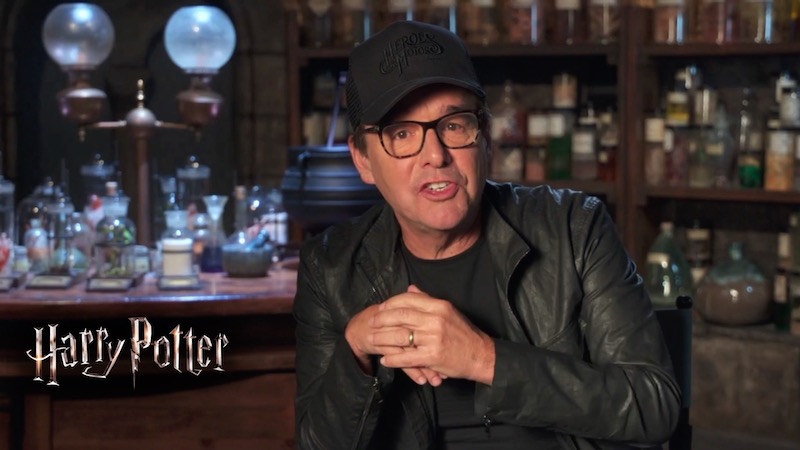Harry Potter and the Sorcerer’s Stone turned 20 this year, and to commemorate the occasion, ComingSoon sat down with the film’s director, Chris Columbus, to discuss the legacy of this now-classic film that is available to own in 4K, Blu-ray, and DVD.
Jeff Ames: Looking back on the film 20 years later, would you tackle it differently knowing what you know now?
Chris Columbus: No. The only time that ever came up, really, is — we had a conversation. We had three novels when we started the first film, I read the transcript of Goblet of Fire before we started shooting the first film. I thought at the time I was going to do all seven movies. Little did I know that I’d be exhausted after two — 320 steady days of shooting will do that.
But the idea was that the films would get progressively darker and darker, and Jo Rowling basically shared that with David Heyman, the producer, and Steve Kloves, the writer, and she shared a very important piece of information over dinner with Alan Rickman. She told him what would happen to Snape in the seventh book. She basically outlined his character, so when we were shooting scenes with Alan, sometimes he would do some weird idiosyncrasy or something. I would walk up to him and say, “Why did you just do that?” [And he would say] “You’ll know when you read the seventh book.” Everyone had a certain secret that Jo Rowling told them that fueled their character.
One of the more iconic bits of Harry Potter is John Williams’ iconic score. Do you remember your reaction to hearing his iconic theme for the first time?
Oh, God, yeah. I mean, being on that stage — and to watch John conduct is cinematically a historical experience. He had played it for me on the piano, and when I heard [Hedwig’s Theme] on the piano, I knew we had something special. I was like, “Oh, this is the guy who wrote the Star Wars theme, the Raiders theme, the Jaws theme, he’s done it again!”
I would work with John on every movie, unfortunately he’s John Williams and he’s not always available. His score was iconic and just beautiful.
Daniel Radcliffe, Emma Watson, and Rupert Grint are all talented actors who have gone on to have amazing careers. What drew you to each of them for these particular roles?
Well, Rupert and Emma were pretty obvious. I felt that they had jumped off the page. I saw a BBC production of David Copperfield that Dan was in and that was the moment. He was only in it for four minutes, but I ran to the casting director the next day and I said this is our Harry Potter, Daniel Radcliffe. She said, “You’ll never get him because his parents do not want him exposed to this kind of thing.” I kept begging and begging and luckily David Heyman, the producer, went to the theater one night and four rows ahead of him was Daniel Radcliffe and his father. And David being the great producer that he is, went up to the Radcliffe’s and convinced them to come in for an audition. That’s when we knew we had our Harry Potter.
After all these years, why do you think Harry Potter became such a milestone in pop culture?
I think we just set out to make the first films timeless. The mantra to my crew on Home Alone was when this film is shown on 20 years from now — it’s on TV at 2:30 in the morning — I want it to feel as fresh as it did in 1990. I want people to think, “Oh, that was made yesterday.” That was the mantra on Harry Potter. We wanted people to share in a timeless experience.
Cinematically, you learn from the classics. You learn from movies that have stood the test of time. There’s a reason The Wizard of Oz is still being show and people still love it. That was basically what was helpful and why people are still watching the film.










